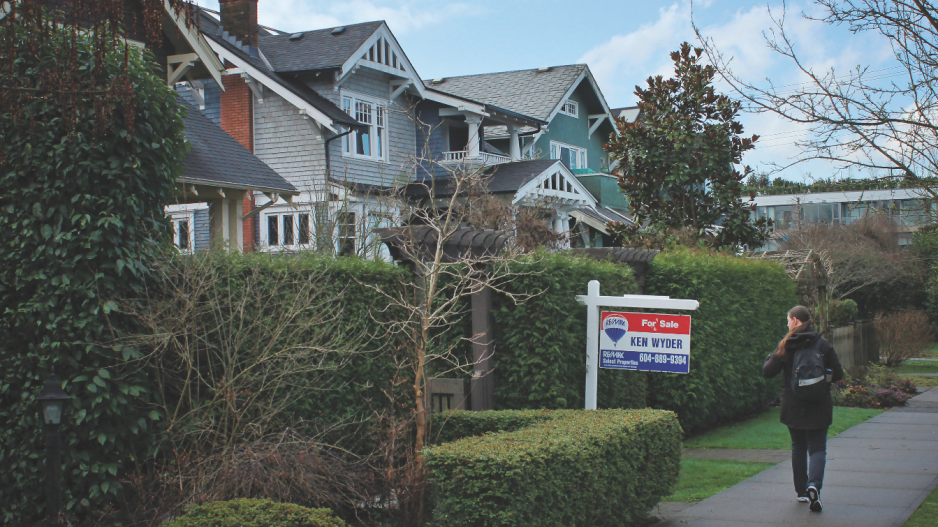The Real Estate Board of Greater Vancouversays December home sales rose compared with a year earlier as the region closed out 2023 with balanced market conditions despite high borrowing costs.
The board said in a report released Wednesday that 1,345 homes changed hands in December, a 3.2 per cent increase from the same month in 2022, but 36.4 per cent below the 10-year seasonal average.
There were 1,327 new listings of detached, attached and apartment properties last month, a 9.9 per cent increase from a year earlier. New listings were 22.7 per cent below the 10-year seasonal average.
The composite benchmark home price in December for Metro Vancouver was $1,168,700, a five per cent increase from December 2022, but down 1.4 per cent from November 2023.
“In our 2023 forecast, we called for modest price increases throughout the year while most other forecasters were predicting price declines," said Andrew Lis, the board's director of economics and data analytics, in a press release.
"The fact that we ended the year with five-per-cent-plus gains in home prices across all market segments demonstrates that Metro Vancouver remains an attractive and desirable destination, and elevated borrowing costs alone aren’t enough to dissuade buyers determined to get into this market.”
Lis added that the story of 2023 was "one of too few homes available relative to the pool of willing and qualified buyers."
He said prices rose due to near record-low inventory levels last spring after sellers were reluctant to list their properties early in the year. That forced buyers to compete for the available homes.
Vancouver realtor Tim Hill with Re/Max All Points Realty said the market is beginning to stabilize after interest rate hikes kept many on the sidelines.
But he said attitudes started to shift after the Bank of Canada's September announcement that it would hold its key interest rate steady as inflation slowed.
"When that held, that was a positive that a lot of people were really hoping for and then it continued to stay status quo, which I believe helped with a little bit of consumer confidence," Hill said.
"The issue that I think we still face is just being in a higher interest rate environment."
He said there was increased "energy in the market" toward late November and December as more potential buyers in the region began exploring real estate options.
"A lot more people were feeling comfortable making moves and talking about making moves because they're feeling more confident that, at the very least, we should be at the top of this rate cycle or so, so close," said Hill.
Residential sales in the region totalled 26,249 for the year, a 10.3 per cent decrease from 2022 and 23.4 per cent below the 10-year annual sales average of 34,272.
“Looking back on the year, it’s hard not to wonder how we’d be closing out 2023 if mortgage rates had been a few per cent lower than they were," said Lis.
"It looks like we might get some insight into that question in 2024, as bond markets and professional forecasters are projecting lower borrowing costs are likely to come, with modest rate cuts expected in the first half of the new year.”
This report by The Canadian Press was first published Jan. 3, 2024.
Sammy Hudes, The Canadian Press




